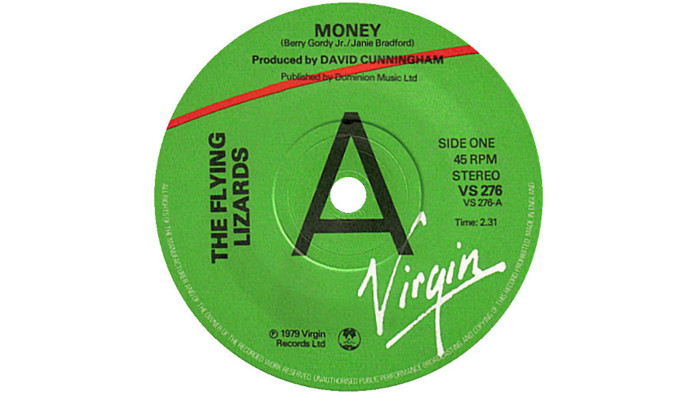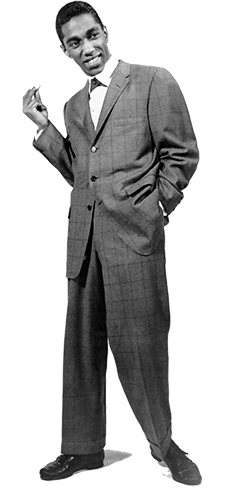The Life of a Song: ‘Money (That’s What I Want)’

Simply sign up to the Life & Arts myFT Digest -- delivered directly to your inbox.
Before the iPod, before the Walkman, there was the jukebox. Not the hulking Wurlitzers that stood in the corners of coffee bars and diners but portable ones that could be closed up and carried.
In the 1960s John Lennon had one such device, a Swiss-made KB Discomatic which he took on tour with The Beatles; it was packed tight with 40 singles, many of them formative influences on the band, many by black American artists: Wilson Pickett, Chuck Berry, Smokey Robinson.
The last disc on the jukebox, coming in at number 40, was by Barrett Strong: “Money (That’s What I Want)”. This was not just an influential song but one that The Beatles themselves covered, in a blistering version, in 1963.
Strong had recorded the song for Berry Gordy Jr’s nascent Tamla Motown label (then called Tamla) in 1959. With Gordy and Janie Bradford credited as writers, it featured a powerful vocal performance by Strong, but flopped. The following summer, though, it was re-released on Gordy’s sisters’ label Anna Records and reached number two in the US R&B charts.
Then The Beatles picked it up and ran with it. It had long been part of their repertoire: they played it on their unsuccessful audition tape for Decca. Ian MacDonald’s masterful Beatles chronicle Revolution in the Head tells the story in full but essentially it was recorded one evening in July 1963 (with producer George Martin overdubbing the piano part 12 days later) for the band’s second album, With The Beatles. “No British act,” writes MacDonald, “has ever matched the intensity of the vocal performances captured here.” Hyperbole? It’s certainly a feverish, thrilling rendition, with Lennon screaming “I wanna be free!” in the closing choruses.

From there the song was taken up by the Rolling Stones, among others, with Brian Jones giving the riff a lovely churning twist. In 1969 Lennon revisited it, playing it live in Toronto with Eric Clapton on guitar. It’s a bruising, slowed-down, world-weary rendition and Lennon, with his white suit, shaggy mane and beard, is almost unrecognisable from the fresh-faced lad of six years earlier.
It’s not known what Lennon thought of the next version to make the charts but, given his penchant for dry humour, it’s likely that he would have appreciated The Flying Lizards’ rendition, a hit in 1979, a year before Lennon’s death. In what is perhaps the first postmodern pop song, this art-pop collective recorded a stripped-down, deadpan, plinky-clanky version with vocalist Deborah Evans-Stickland flatly intoning the lyric. A weird and unlikely hit, it reached number five in the UK charts.
As for Lennon’s jukebox, in 1989 it turned up at an auction of Beatles memorabilia at Christie’s in London and was bought by a Bristol-based music promoter, John Midwinter, for just £2,500. Some years later, realising the importance of this treasure, and realising that he was dying of cancer, Midwinter was keen to see it memorialised. His wish was granted soon after his death in 2004 when British arts TV programme The South Bank Show made a documentary featuring interviews with many of the artists on Lennon’s jukebox. A compilation CD was also released, featuring many of the songs, among them Strong’s “Money”.
The story ends with an ironic twist. Strong was originally credited as a co-writer of the song but his name was later removed by Motown. Gordy’s lawyers later claimed that Strong had no hand in writing the song and had originally been credited through a clerical error. Now 74 and living in a Detroit retirement home, Strong says that he came up with the song’s famous piano riff. He is pursuing a claim for unpaid royalties.
For more in the series and podcasts with clips, visit ft.com/life-of-a-song
Photograph: Michael Ochs Archives/Getty Images
Comments